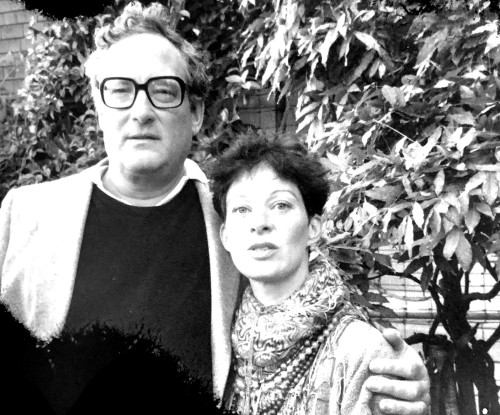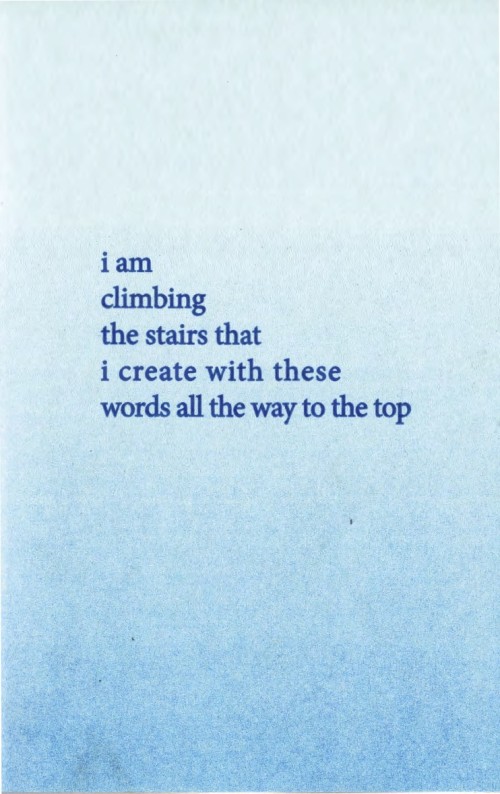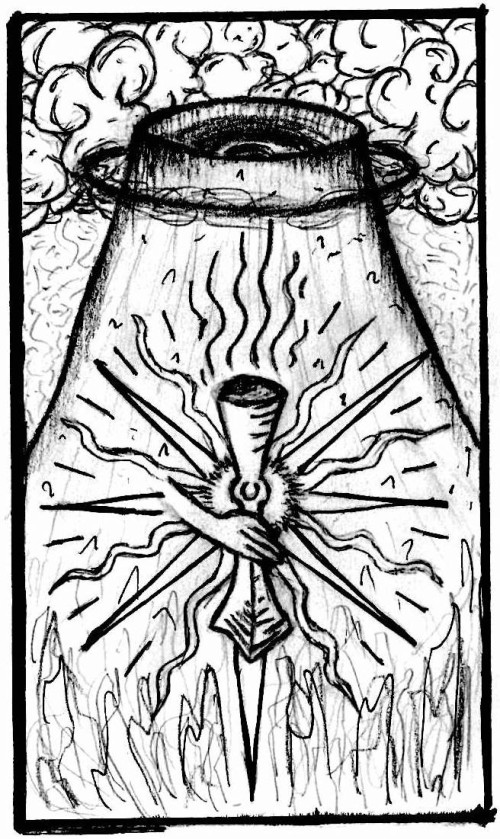The thing is, I remember even up until 2012 or so, it seemed really experimental for transsexuals to write lyric poetry.
In the summer of 2012, I met Stephen Ira in a free poetry workshop for queer youth run by the Seattle parks department. At 19 I was the oldest queer youth by a number of years, seething with discomfort, home for summer for the last time, getting ready to leave my first love. I was thinking about not coming back to the workshop. Then, finally, a guest poet I could RELATE to. Swishy and confident, Ira read us selections from Kevin Killian’s Action Kylie. I thought it was all really experimental. I stayed, and wrote poems.
In the summer of 1973, Lou Sullivan’s essay A Transvestite Answers a Feminist asked “Who can have a ‘deep satisfying love’ under these conditions?” The thing is, I remember even up until 2012 or so, it seemed really experimental for transsexuals to be loved.
Theoretically, experiments go one of two ways: it is proven, it is not proven. In life, the act of experimenting and the idea of the experimental evoke murkier territory: We can’t know what these experimental drugs will do to the children! Oh, she’s experimenting with gender. He’s experimenting with men. She’s experimenting with women. It’s normal to experiment! They’re experimenting with hormones. Think of it as a sexual experiment! This is too experimental. It’s kind of a social experiment. Experimental pill causes some to regrow nearly a full head of hair! Gender experiments conducted in public schools.
In the summer of 2022 on grindr the ftms want to experiment with the cis men, and the cis men want to experiment with the ftms, and the baby ftms want to experiment with the actualized ftms, and some of the non-binaries want to experiment with the ftms because they might be ftms later, and some of the non-binaries want to experiment with the ftms for the usual reasons, and many of the mtfs want to experiment with having a deep and satisfying love with the ftms, and sometimes the people get what they want. On my knees in Fairmount Park there is no difference between me and any other type of man.
In experimenting we reach beyond what we are. The experiment reaches forward, seeks to know more, seeks a different condition and so creates it. Whether or not something is proven, we are changed in the act of experimenting. That’s queer futurity baby.
It hardly seems experimental for transsexuals to write lyric poetry now. In 2013 we got Troubling the Line: Trans and Genderqueer Poetry and Poetics. In 2015, the first issue of Vetch: a magazine of trans poetry and poetics (co-edited by Ira). In 2020, We Want It All: An Anthology of Radical Trans Poetics. In the summer of 2022, I know dozens of trans poets. You actually cannot throw a chap without hitting one (Why does anything I say sound like I don’t like it? I like it.)
For trans poets and those who love them, Stephen Ira has been a household name for a number of years. His generous linguistic precision, humor, light hand and right timing have made him an icon for a certain niche transfagpoet crowd. He’s the guy we trust to say gracefully the thing we are struggling to give words. It’s actually obscene that this is his first book. Chasers records the burgeoning love between a cisgender man (Chris) and a transsexual man, the photographer and the poet, the chaser and the chased. A deeply sexy book, and an extremely timely one, Chasers gets at the present tensions between queer cis and trans people, and their shared tensions with the straight world.
The book opens with my pick for the hit single, “The Cis People,” telling us “they seemed to have appeared so suddenly” and “There were no cis people. Considered intersectionally, the theory did not make sense.” Right off the bat, Ira lets us know we won’t be engaging in a typical cis-on-trans gender ethnography. In the world of Chasers (and indeed sometimes in the real world), transsexuals are the center and cis people are the constituive outside.
Does it still seem experimental for transsexuals to be loved? The cis people I know whose lives are most entagled with the trans people they love are the ones most afraid to be accused of being chasers or fetishists. They worry they or their lover will be infatantalized or medicalized—“All ‘terms’ make me feel like a child, a doctor, or a child doctor, Doogie Houser, Freddie Highmore, I hate it, I hate it!”—no one wants to be told that their deep, satisfying love is based on objectification. No one wants to be an object all the time. They worry they will be accused of living in a world of fantasy (and in their moments away from the hateful public, are they not in a world of fantasy? Isn’t any pair of lovers?)
We find Chasers’ lovers in lush dreamscapes, in the halflight of the alders, a house deep in the woods, on the moon, and sometimes absent from each other. In these moments of separation, I think of Felix Gonzalez-Torres’s empty bed billboards, language pooling up in his absent indentation on the pillow.
My favorite poems ground in the real: the crowded sands of Jacob Riis beach, in bed, upstairs at the leather bar, folding towels, in the car listening to Love Line. In the poem “Love Line,” Ira pinpoints unglamourous tasks as integral to the chaser’s love for the chased:
…how you knew
when you saw
the first you saw
(God rest her soul), that life
would take a turn now,
and you’d spend it
driving us to appointments,
wiping up vomit,
helping us move.
These lovers are deeply specific people and could not be any cis/trans couple. Yet, Chasers shows the pitfalls of imagining any relationship could be free of its larger social context. If a book of love poems can be said to have a political project, Ira’s project is most clear in “Poem”:
I loved him so much
my heart flew out
of all frameworks for power
I knew, and I thought
he was different and I
waited to find out
what that meant, but given
time, discovered
he’s not different, they’re just not
all the same, and that
was terrifying, terrifying news.
The Frank O’Hara comparison is clear, not just from the title “Poem” but the conversational everyday nature of Ira’s voice, and the named cast of friends, acquaintances, and celebrities. These lovers ramble through an ecosystem of deviants famous and intimate: the two men in his whole town who remind him of life (they’ve never met), Bernadette Peters as Dot in Sunday In The Park with George, Mackenzie, Liam, Nathan Lane, Chartreuse, Kevin, Mark, Will, Nicki Minaj, Dr. Drew, boys to put your fist inside. A many gendered cast, with the world of gay men and trassexuals at the core. Chasers reflects not just the extant presence of trans men within the sphere of gay men’s sexuality, but of cis people within the sphere of trans sexuality.
If we get comfortable with the idea that a sex act may take many forms and that each of those configurations can signify an endless number of meanings to its participants and observers, then we may encounter desire as complex. It’s not all tops and bottoms, poles and holes, “cis people just walk[ing] around fucking everyone with their huge stuff.” If we can encounter sexual desire as complex we may see all sex as experimental, all participants and observers in a state of experimenting.
You don’t get too far without finding it all slipping around. Lubricated, we stretch into previously impossible configurations. Ira’s Chasers is doing lubricant work to the places gay men and transsexual men rub up against each other. And they do rub. Gay cisgender men have been sucking, fucking, living, and loving with and alongside gay transsexual men for a long time. We’re not so different, and anyway there aren’t that many watering holes anymore (and a hole is a hole is a hole).
If we get comfortable with the idea that we come together as gay men in endless configurations, who are we to deny the allure of the chaser? The chaser is always reaching forward, the chaser’s chase oriented always toward desire. What is it that the chaser chases with such relentless want? It must be very beautiful, let’s follow and see for ourselves. Look out lovers, the transsexuals may be chasing you.
In case you haven’t noticed, the culture wars are on again, transsexuals are in play, and everybody’s right to privacy and bodily autonomy is on the line. Some are loath to say it, but we need our allies close. Chasers, please love trans people so much your heart flies out of all frameworks for power you know.
I’m calling it: 2022 is the Summer of the Chaser. It’s hot out, we’re all curious about each other’s bodies, who is what matters both more and less than we remember it mattering, the fascists are encroaching, let’s experiment, let’s fall in love!
Chasers by Stephen Ira (New Michigan Press, 2022)


